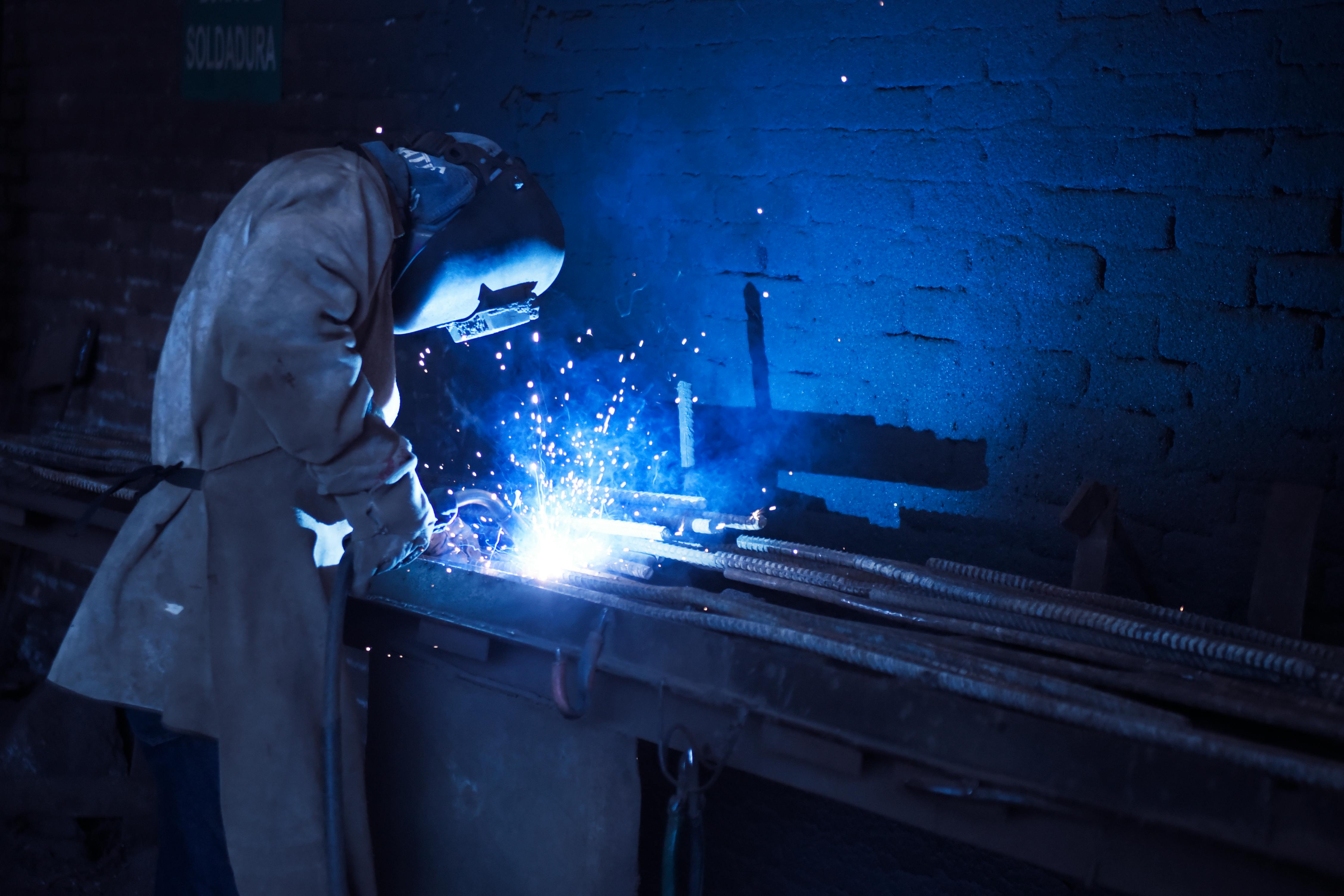Baker College
Research Guides
- Library Resources
- Research Guides
- Engineering / Technology
- Welding
- Welding Technology
Welding
Welding is a fabrication process that joins materials, usually metals or thermoplastics, by causing coalescence. This is often done by melting the workpieces and adding a filler material to form a pool of molten material (the weld pool) that cools to become a strong joint, with pressure sometimes used in conjunction with heat, or by itself, to produce the weld. Welding is distinct from lower-temperature metal-joining techniques such as brazing and soldering, which do not melt the base metal.
The importance of welding in various industries cannot be overstated. It is a critical component in the construction, automotive, and manufacturing sectors, among others, due to its strength, versatility, and durability.

- Construction: Welding is fundamental in the construction of buildings, bridges, pipelines, and other infrastructure. It provides the structural integrity needed to ensure safety and longevity. Welding techniques are used to join steel beams, reinforced concrete, and assemble prefabricated structures, making it indispensable in creating the skeletal framework of most modern constructions.
-
Automotive: In the automotive industry, welding is crucial for assembling the chassis, body, and components of vehicles. It ensures the durability and safety of cars, trucks, and motorcycles. Advanced welding techniques have enabled the automotive industry to produce lighter, stronger, and more fuel-efficient vehicles by using different materials and innovative designs.
-
Manufacturing: Welding is a cornerstone of manufacturing processes, essential for fabricating a wide range of products from household appliances to heavy machinery. It allows for the mass production of goods with consistent quality and strength. Welding automation and robotic welding are increasingly being adopted in the manufacturing sector to enhance efficiency, precision, and safety.
In addition to these industries, welding plays a significant role in shipbuilding, aerospace, and energy sectors, highlighting its versatility and indispensability. The development of new welding technologies and materials continues to expand its applications, further solidifying its importance across a broad spectrum of industries.
